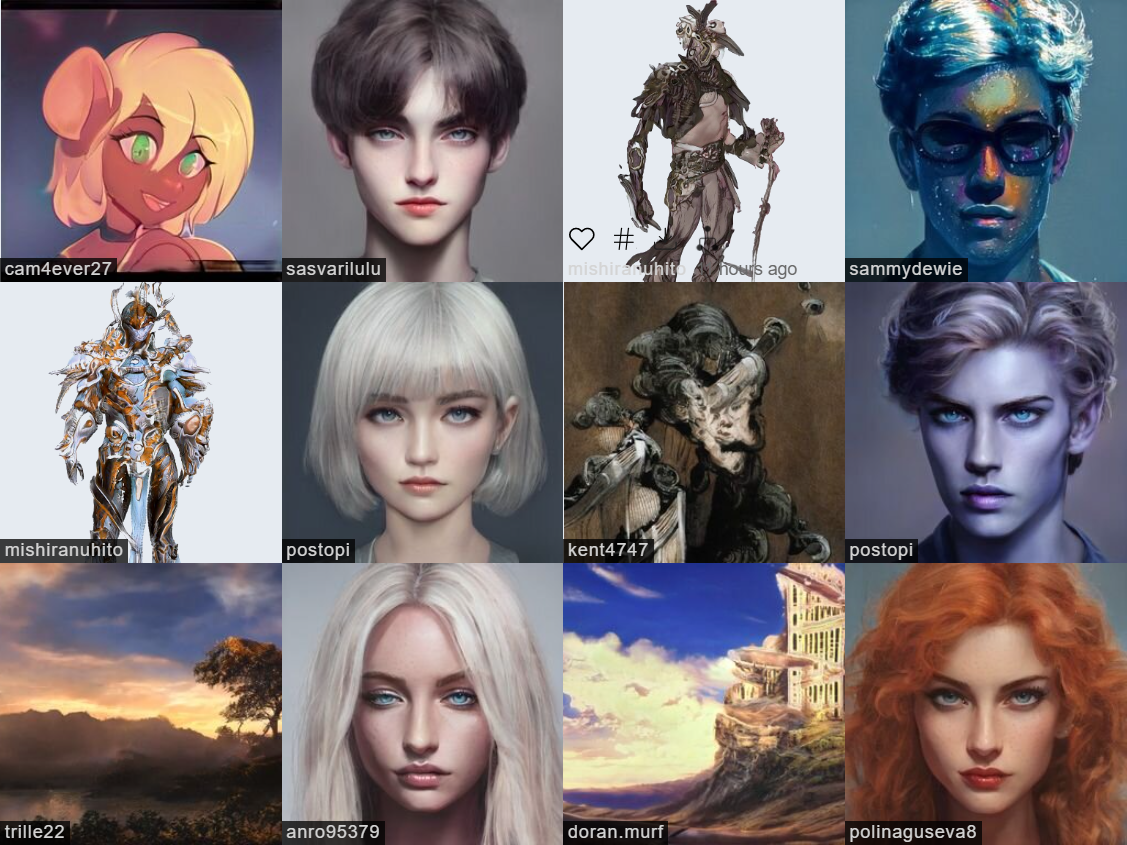Unleashing Creativity: The Wild World of AI Character Art Generation
Imagine a world where bringing your fictional heroes and villains to life is as simple as typing a description. Sounds like science fiction, right? Not anymore. Thanks to the rapid advancements in artificial intelligence, computer-generated character art is no longer a futuristic dream but a tangible reality. This new frontier of creativity is transforming how we visualize and create characters, offering a wealth of possibilities for artists, writers, game developers, and anyone with a spark of imagination.
AI-powered character art generation involves using algorithms to create visual representations of characters based on textual descriptions, keywords, or even sketches. This can range from generating simple portraits to crafting intricate, fully-rendered characters with detailed costumes and dynamic poses. This technology is not just about automating the artistic process; it's about augmenting human creativity and opening doors to entirely new forms of artistic expression.
The journey of AI character art generation began with the broader field of generative AI, which aims to create new content, ranging from text and music to images and videos. Early attempts involved using algorithms to generate basic shapes and patterns. However, with the development of more sophisticated techniques like Generative Adversarial Networks (GANs) and diffusion models, the quality and complexity of AI-generated art have taken a quantum leap forward. These models learn from massive datasets of images and text, enabling them to generate visually compelling and stylistically diverse character art.
The significance of this technology lies in its ability to democratize art creation. Previously, creating high-quality character art required years of practice and specialized skills. Now, with AI tools, anyone can bring their imagined characters to life, regardless of their artistic background. This opens up exciting possibilities for storytelling, game development, and even personal creative projects. Imagine effortlessly creating concept art for your novel, designing unique avatars for your online presence, or generating custom characters for your tabletop RPG campaigns.
However, the rise of AI character art generation also presents certain challenges. One key concern is the potential impact on the livelihoods of professional artists. While these tools can be valuable assistants, there are concerns about AI potentially replacing human artists altogether. Another important issue is copyright and ownership. Who owns the copyright to AI-generated art: the user who provides the prompt, the developer of the AI model, or the artists whose work was used to train the model? These are complex questions that the industry is still grappling with.
There are several advantages to using AI to create character art, such as speed, accessibility, and affordability. As examples, a writer could quickly mock up a visual of their character, someone with little to no artistic skill could generate a character portrait, and an indie game developer could populate their game with unique NPCs without hiring a team of artists.
Best practices for implementing AI character art generation include understanding the limitations of the chosen tool, experimenting with different prompts and keywords, iterating on generated outputs, curating and refining results, and respecting ethical considerations like copyright.
Advantages and Disadvantages of AI Generated Character Art
| Advantages | Disadvantages |
|---|---|
| Speed and Efficiency | Potential Job Displacement for Artists |
| Accessibility for Non-Artists | Copyright and Ownership Issues |
| Cost-Effectiveness | Over-Reliance on AI, Stifling Human Creativity |
Frequently Asked Questions:
1. What is AI character art generation? (Answered above)
2. How does it work? (Answered above)
3. What are the benefits? (Answered above)
4. What are the ethical considerations? (Answered above)
5. Where can I find AI art generators? (Many resources are available online; a quick search will reveal numerous options.)
6. Can I use AI-generated art commercially? (This depends on the specific terms of service of the platform you use. Always check the license agreement.)
7. How can I improve the quality of my AI-generated art? (Experiment with different prompts, styles, and settings within the AI art generator. Refine the initial output with editing software if needed.)
8. Is AI art "real" art? (This is a subjective question with ongoing debate. Ultimately, it depends on individual perspectives on art and creativity.)
Tips and tricks for using AI character art generation tools include: Be as specific as possible in your prompts; utilize keywords that describe the desired style, mood, and details; experiment with different art styles; don’t be afraid to iterate and refine generated images; consider using multiple AI art generation platforms to compare results.
In conclusion, the advent of AI-powered character art generation has fundamentally changed the creative landscape. It offers a powerful new tool for artists and non-artists alike to visualize and bring their characters to life. While challenges and ethical considerations remain, the potential of this technology to unlock human creativity and democratize art creation is undeniable. From streamlining the workflow of professional artists to empowering individuals to explore their artistic potential, AI character art generation is an exciting development that promises to shape the future of visual storytelling and creative expression. This technology encourages experimentation and empowers individuals to explore their imaginative potential. As we continue to explore the capabilities of AI, it’s essential to approach this technology responsibly and embrace its potential to enhance, not replace, human creativity. Dive in, experiment, and discover the power of AI to bring your character visions to life!
Understanding the normally open flow switch symbol
Dominate fortnite with the best clipping software free
Exploring the world of animated horror videos













